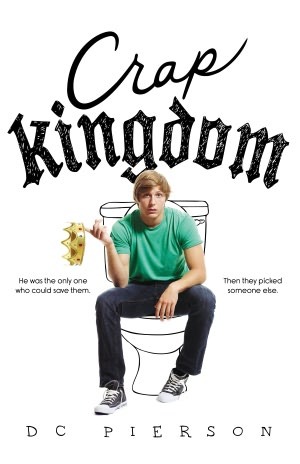
Bowen, Fred.
Perfect Game.
1 March 2013, Peachtree Press
Copy provided by the author
Isaac is a great pitcher, but his father thinks he can be even better. "Practice doesn't make perfect. PERFECT practice makes perfect," is his mantra. In order to make the Thunderbolts team, he thinks he needs to pitch a perfect game, and is visibly dismayed when he doesn't. His coach asks if he knows anything about basketball, and asks if he will come and help with a team he coaches. This turns out to be a Special Olympics team. Isaac isn't thrilled about working with "retards", but the coach's daughter, Maya, quickly discourages from using this derogatory term and shows him the dedication to the game that the players exhibit. Isaac and Maya play on the team and help the others to make plays. One of the boys, Kevin, has been reluctant to work with the team, although he is quite a good shot. He warms to Isaac, and the two work on getting Kevin ready to play with the others. On the baseball front, Isaac's dad is still pressuring him to pitch perfect games, but Isaac is learning from both his baseball and basketball experiences that helping the team to win is really what is important.
Strengths: As with all of Fred Bowen's books, this had lots of details about games and tables of statistics that I don't quite understand, but that my readers love. Interwoven with this is the more serious topic of Isaac's unrealistic drive and his slow acceptance of the players on the Special Olympics team. This portrayal is almost painfully realistic-- as often as teachers and parents tell children not to use the term "retard", they still do. Seeing Isaac use this term out of ignorance and then learn why it is hurtful is more helpful than all the lectures adults can deliver. Bowen also writes strong female characters, and includes helpful information at the end of the book both about historical perfect games, Fragile X syndrome, and the Special Olympics.
Weaknesses: This was so much nicer to read in a hardcover with a dust jacket; so many of these titles are published only in paperback. While these are nice as gifts for sports loving boys, they are not as appealing to library patrons.

Kelly, David
A. Miracle Mud: Lena Blackburne and the Secret Mud that Changed Baseball.
1 April 2013, Millbrook Press
E ARC from Netgalley.com
Apparently, new baseballs are too white and shiny to use right away, so players would spit tobacco juice on them and rub them with shoe polish to change this, which made the balls rather unpleasant. As a coach, Blackburn looked for ways to season the balls without making them disgusting, and found the answer in mud that he found while fishing. He packed and sold it, and it's the only thing that is allowed to be used to this day. Really. Take a look at
Baseballrubbingmud.com.
Strengths: This would be great in an elementary library for Little Leaguers. They'll love the details of spitting on balls!
Weaknesses: This is a picture book, and rather young for my middle school students. I didn't care much for the style of illustrations.

It's
Marvelous Middle Grade Monday at Ramblings of a Wannabe Scribe and
What Are You Reading? day at
Teach Mentor Texts. Both sites have lots of links to reviews about books that are great for the 4th through 8th grader. It's also
Nonfiction Monday, hosted this week at
Perogies and Gyoza.
On a totally random side note, does anyone else think that
Roger Sutton is not a very nice person? I don't follow any of the Battle of the Book brackets that are so prevalent at this time of year, but he has decided to opine on the quality of the reviews for the books rather than on the books in question. This is a perfectly fair practice, but Mr. Sutton's tone is one of derision for just about everyone, and he seems to delight in snarky observations that are not constructive. I don't find this to be helpful.
There is always discussion back and forth about whether book reviews are too mean or too nice or give enough information about the quality of the writing. This made me think about my own reviews, which follow a much derided formual: plot summary, then very short opinion.
This is what I find helpful. The publishers' summaries seem to be lacking in many key elements, so I do find it helpful to read blog reviews. I have a short attention span, so don't really want more than a paragraph, so that's all I write. Unless a book is absolutely wretched (
Hokey Pokey, anyone?), I try to focus on what students will like the book, even if I don't care for it personally.
I'm open to any thoughts if people want to chime in with criticism, and apologize for blathering-- I think that all bloggers have occasional crises of usefulness, especially when winter wears on!
I'm NEVER going to be asked to be on the Newbery committee. Oh, well.










